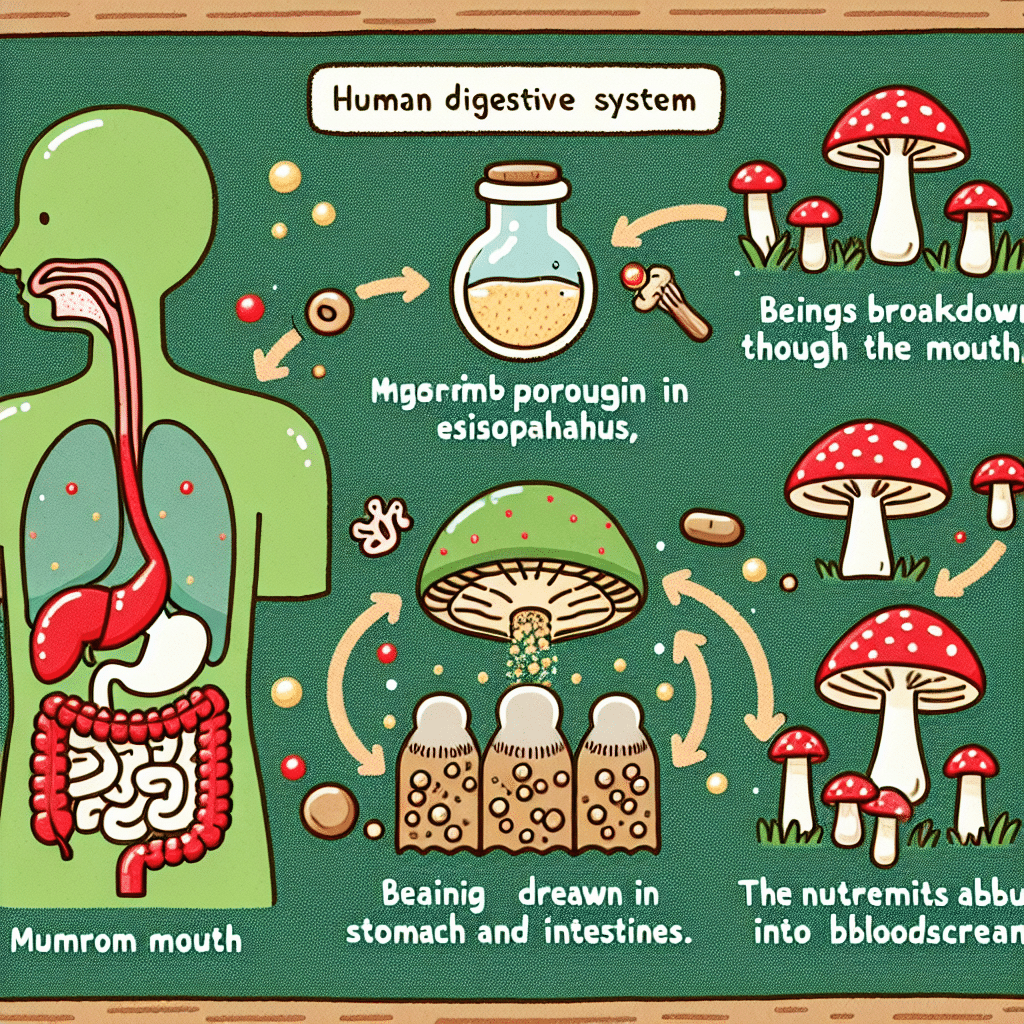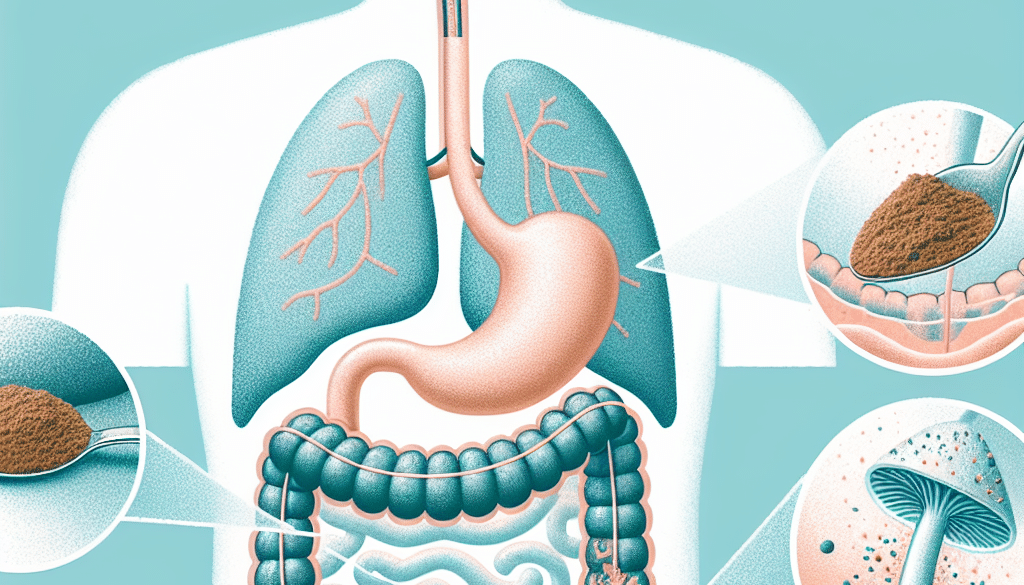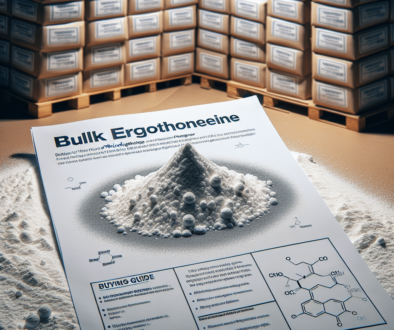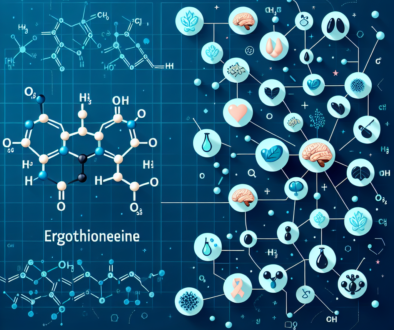Does The Body Absorb Mushroom Powder?
-
Table of Contents
- Mushroom Powder Absorption: Unveiling the Nutritional Benefits
- Understanding Mushroom Powder
- The Digestibility of Mushroom Powder
- Nutrient Absorption from Mushroom Powder
- Scientific Research on Mushroom Powder Absorption
- Health Benefits of Mushroom Powder
- Case Studies and Examples
- Statistics and Market Trends
- Conclusion: Key Takeaways on Mushroom Powder Absorption
- Discover ETprotein’s Premium Protein Products
Mushroom Powder Absorption: Unveiling the Nutritional Benefits

Mushrooms have been a valuable food source and medicinal ingredient for centuries, known for their rich nutrient profile and potential health benefits. With the rise of functional foods and dietary supplements, mushroom powders have become increasingly popular. These powders are often touted for their ease of use and concentrated nutrients. However, a common question arises: Does the body absorb mushroom powder effectively? This article delves into the science behind mushroom powder absorption and its implications for health and nutrition.
Understanding Mushroom Powder
Mushroom powder is made by drying and grinding various types of mushrooms into a fine dust. This process concentrates the mushrooms’ natural compounds, including vitamins, minerals, antioxidants, and other bioactive substances. The types of mushrooms commonly used for powders include reishi, lion’s mane, cordyceps, shiitake, and chaga, each with its unique nutritional profile and health claims.
The Digestibility of Mushroom Powder
For any food or supplement to be beneficial, it must be digestible and its nutrients available for absorption. The cell walls of mushrooms are made up of chitin, a fibrous substance that is difficult for the human digestive system to break down. However, the process of making mushroom powder often involves breaking down these cell walls, either through mechanical means or by using enzymes, which can enhance the digestibility and bioavailability of the nutrients contained within.
Nutrient Absorption from Mushroom Powder
The body’s ability to absorb nutrients from mushroom powder depends on several factors, including the type of mushroom, the processing method, and the individual’s digestive health. Here are some key points to consider:
- Processing Techniques: Some mushroom powders undergo fermentation or extraction processes that can increase the bioavailability of certain compounds, such as beta-glucans and triterpenoids.
- Individual Variability: Factors such as age, gut health, and the presence of other foods can influence how well nutrients are absorbed from mushroom powder.
- Complementary Ingredients: Consuming mushroom powder with other foods that contain vitamin C, for example, can enhance the absorption of certain antioxidants.
Scientific Research on Mushroom Powder Absorption
Several studies have investigated the bioavailability of nutrients from mushroom powders. For instance, research on reishi mushroom extract has shown that its active compounds, such as polysaccharides, can be detected in the bloodstream after oral consumption, indicating absorption. Similarly, studies on shiitake mushroom powder have demonstrated improvements in immune markers, suggesting that the body can absorb and utilize its beta-glucans.
Health Benefits of Mushroom Powder
Mushroom powders are associated with a range of health benefits, which are attributed to their nutrient-rich composition. Some of these benefits include:
- Immune Support: The beta-glucans in mushrooms are known for their immune-modulating effects.
- Cognitive Health: Lion’s mane mushroom, in particular, contains compounds that may support brain health and cognitive function.
- Energy and Stamina: Cordyceps mushroom is often used by athletes for its potential to enhance energy production and endurance.
- Antioxidant Properties: Many mushrooms contain antioxidants that help combat oxidative stress and may contribute to overall health.
Case Studies and Examples
Case studies on individuals using mushroom powders have reported improvements in various health parameters, such as increased energy levels, better sleep quality, and enhanced cognitive function. While these anecdotal reports are promising, more rigorous scientific research is needed to substantiate these claims.
Statistics and Market Trends
The global market for mushroom supplements, including powders, is growing rapidly. According to a report by Grand View Research, the global mushroom market size was valued at USD 46.1 billion in 2020 and is expected to expand at a compound annual growth rate (CAGR) of 9.5% from 2021 to 2028. This growth is driven by increasing consumer awareness of the health benefits of mushrooms and the rising popularity of plant-based supplements.
Conclusion: Key Takeaways on Mushroom Powder Absorption
In conclusion, the body can absorb mushroom powder, and this form of supplementation offers a convenient way to incorporate the nutritional benefits of mushrooms into one’s diet. The digestibility and bioavailability of mushroom powder nutrients are influenced by processing methods and individual digestive health. With a growing body of research and market trends favoring functional foods, mushroom powders are poised to remain a popular choice for health-conscious consumers.
Discover ETprotein’s Premium Protein Products
If you’re looking to enhance your diet with high-quality protein supplements, consider ETprotein’s range of organic bulk vegan proteins and L-(+)-Ergothioneine (EGT). Their products, including organic rice protein, pea protein, and various seed proteins, are characterized by a neutral taste, non-GMO, and allergen-free attributes. With L-(+)-Ergothioneine purity over 98%, ETprotein caters to industries such as nutraceuticals, pharmaceuticals, and food and beverage, providing comprehensive protein solutions for your needs.
About ETprotein:
ETprotein, a reputable protein and L-(+)-Ergothioneine (EGT) Chinese factory manufacturer and supplier, is renowned for producing, stocking, exporting, and delivering the highest quality organic bulk vegan proteins and L-(+)-Ergothioneine. They include Organic rice protein, clear rice protein, pea protein, clear pea protein, watermelon seed protein, pumpkin seed protein, sunflower seed protein, mung bean protein, peanut protein, and L-(+)-Ergothioneine EGT Pharmaceutical grade, L-(+)-Ergothioneine EGT food grade, L-(+)-Ergothioneine EGT cosmetic grade, L-(+)-Ergothioneine EGT reference grade and L-(+)-Ergothioneine EGT standard. Their offerings, characterized by a neutral taste, non-GMO, allergen-free attributes, with L-(+)-Ergothioneine purity over 98%, 99%, cater to a diverse range of industries. They serve nutraceutical, pharmaceutical, cosmeceutical, veterinary, as well as food and beverage finished product distributors, traders, and manufacturers across Europe, USA, Canada, Australia, Thailand, Japan, Korea, Brazil, and Chile, among others.
ETprotein specialization includes exporting and delivering tailor-made protein powder and finished nutritional supplements. Their extensive product range covers sectors like Food and Beverage, Sports Nutrition, Weight Management, Dietary Supplements, Health and Wellness Products, and Infant Formula, ensuring comprehensive solutions to meet all your protein needs.
As a trusted company by leading global food and beverage brands and Fortune 500 companies, ETprotein reinforces China’s reputation in the global arena. For more information or to sample their products, please contact them and email sales(at)ETprotein.com today.












